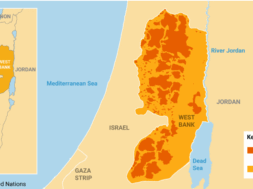
Roving Periscope: With the Eagle in its sky, Iran is unlikely to directly attack Israel
Virendra Pandit
New Delhi: Stunned at the sheer speed with which Israel has almost destroyed two of its two proxies—Hamas and Hezbollah—within weeks, Iran is, despite its fire and brimstone and bravado, unlikely to launch a direct attack on the Jewish nation.
Particularly as the Eagle—the United States—is hovering in the Mideast’s skies, waiting to pounce on Tehran which is fighting its homegrown demons as well.
The panic in Iran can be gauged by the fact that even its Supreme Leader, Ayatollah Ali Khamenei, who vowed to “punish” Israel umpteen times, had to go into hiding at a ‘safer place’ last week.
All Iran can, therefore, do—as of now—is to regroup, rebuild, and rearm whatever of Hamas and Hezbollah remains now. And that will take years if not decades.
For all its hackneyed saber rattling, what Iran claims is its powerful “axis of resistance,” in reality, has seen its soft underbelly exposed again. Any direct attack on Israel will, therefore, immediately cripple Iran. And it knows.
That was why a confident Israel, soon after killing Hezbollah chief Hassan Nasrullah and almost his entire top leadership, went for the jugular of the remaining challenge—the Iran-backed, Yemen-based Houthis.
The West, and Israel, are waiting for Iran to fall in their dragnet.
“Iran will be cornered into responding, with a bigger chorus of Iranian and other people demanding revenge,” said Dina Esfandiary, senior adviser on the Middle East and North Africa at the International Crisis Group, according to the media reports.
But Tehran does not want to be seen as a weakling. Its rhetoric continues.
Veteran diplomat and former Iranian Foreign Minister Mohammad Javad Zarif, now a top aide to the new President, Masoud Pezeshkian, told state television on Sunday: “We will respond at a time that’s appropriate and our choosing.”
Khamenei’s first statement on Saturday emphasized the fact that Hezbollah has enough people to replace Nasrallah and that the “axis of resistance will decide the fate of the region.”
The rhetoric reflects the fears of the Iranian clerical and military establishment, and their attempts to somehow avoid a war. In the immediate term, their task will be to recoup the strength of the terror groups Iran backs in the region and ensure it isn’t baited into a full-blown war.
According to Vali Nasr, a former senior adviser to the US State Department and the Professor of Middle East Studies at Johns Hopkins University: “The priority for Iran is deterrence — it does not want a larger war right now and it suspects that Israel wants one.”
Iran may now try to move thousands of waiting fighters from Iraq to border areas of Lebanon and Syria. Tehran has been preparing to reinforce its deterrence.
“Iran doesn’t fight for its proxies; its proxies fight for it,” said Jonathan Lord, a former Pentagon official and Director of the Middle East Security program at the Center for a New American Security. “The regime is most interested in self-preservation and won’t knowingly put itself at risk.”
Of late, President Pezeshkian had, with tacit support from Ayatollah Khamenei, subtly pursued a policy of cautious engagement with the West to secure relief from economic sanctions, which requires ensuring relations with the US and Europe don’t deteriorate further even as Israel keeps pressuring Iran militarily.
Indeed, the bombardment of Hezbollah’s leadership and members has again exposed Teheran’s limits when it comes to hitting back at Israel.
The missile attack by Tehran in April, thwarted by Israel with the help of its allies, was the maximum Iran could do to Israel so far, despite its generals often warning of a “crushing” or “severe” retaliation. It raised questions of whether Iran could follow through on the threats.
“It’s very clear that Iran is also somewhat stunned by all of this and needs time to regroup,” said Barbara Slavin, a distinguished fellow at the Stimson Center, a foreign affairs think tank in the US. “Iranians are going to remain cautious, they understand that Israel is still in a mood to escalate and strike. They will go back to guerilla tactics and strategic patience.”













